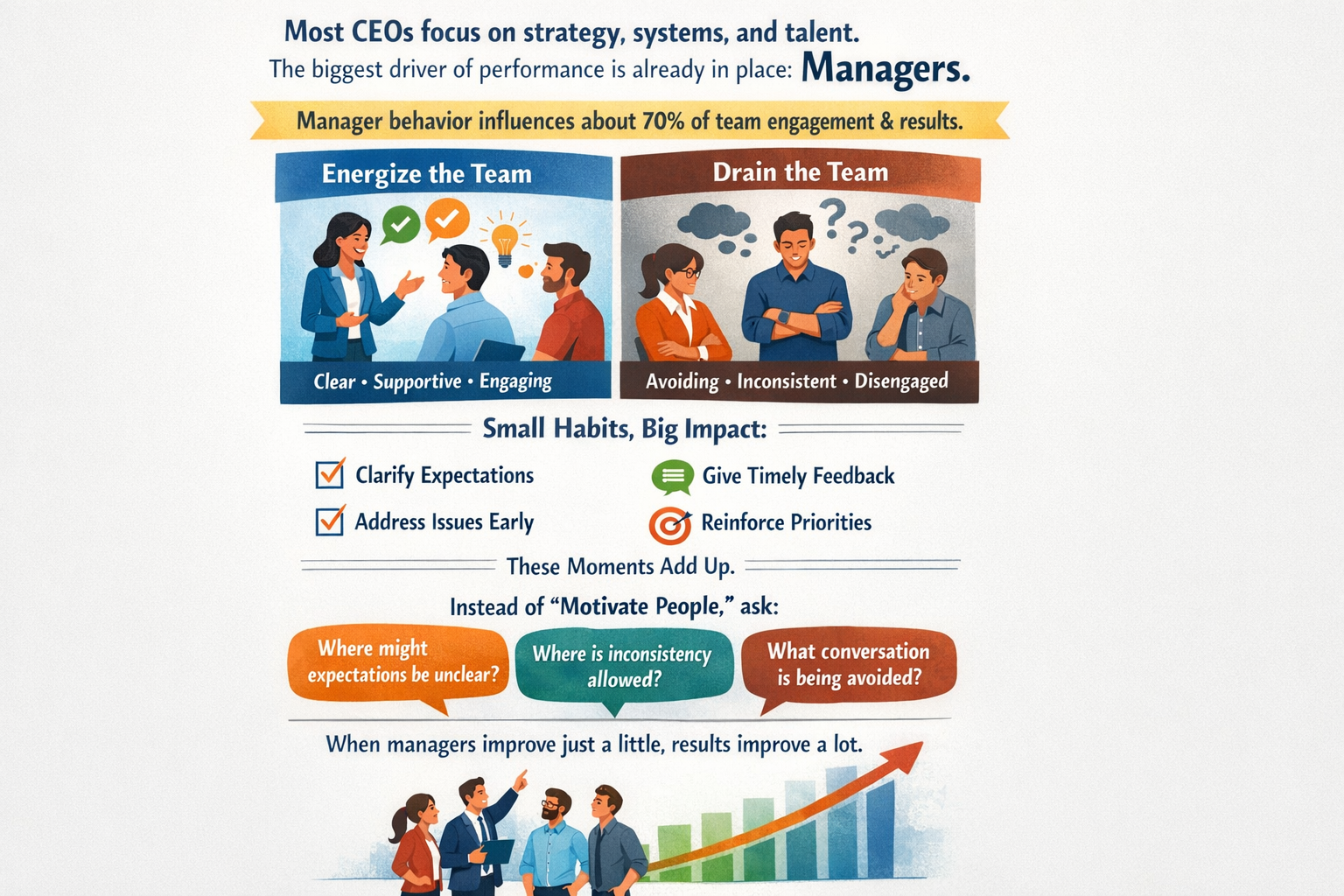Supporting Employees for Excellence

There is a lot of concern today about the state of the workplace. Most of the conversation I hear focuses on employee shortfalls such as limited skills and effort, turnover, low morale, and mediocre productivity. Yet, studies show that employees only control 30% of the factors that impact workplace engagement and, therefore, the bottom line. Let’s talk about the people leaders who control the other 70% of factors that impact workplace engagement which in turn impacts most current concerns about the workforce.
Workplace excellence requires employees to have strong competence in the work they are doing and high commitment to the organization, its leadership, and their job. Leaders can make or break the employees’ commitment and have a responsibility for placing employees in roles that match their competence or providing training to develop the necessary skills.
Only about 10% of people leaders give adequate attention to developing and maintaining employee commitment. Stephen M.R. Covey calls their style of leadership ‘trust and inspire’. They lead in a way that builds trust with and among employees and inspires employees to do their best.
Covey and Gallup call the other 90% ‘command and control’ leaders. They tell their employees what to do but seldom interact in a way that considers, engages, or empowers them. They don’t get their employees best.
Trust and inspire leaders engender high commitment and provide support to develop high competence in their employees. By paying attention to both factors that impact employee success, their organizations have lower turnover, higher morale, and a stronger bottom line.
How can you move from any command and control tendencies you may have to become a strong trust and inspire leadership? Conversational Management training equips leaders with the mindset and the skills to develop a trust and inspire leadership culture. You can learn about this transformational program by contacting Cathie Leimbach at cathie@agonleadership.com.


